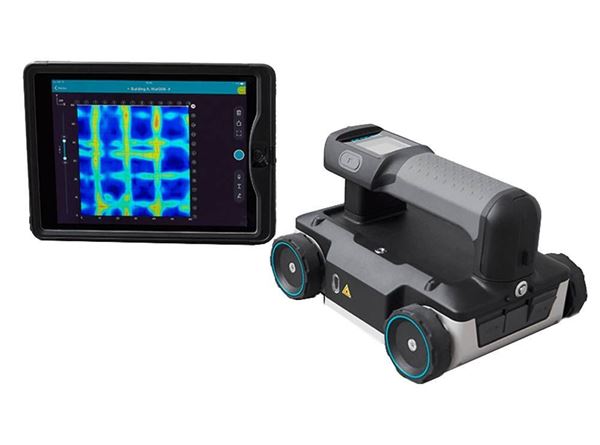Beyond the Surface: Leveraging Advanced Concrete Scanning Techniques for Unmatched Accuracy and Insight
Advanced concrete scanning techniques have arised as vital devices in this quest, offering a glimpse under the surface area to unveil a world of critical insights. By utilizing sophisticated technologies, experts can uncover anomalies, analyze the condition of concrete structures, and make educated choices that shape the program of tasks.
Value of Advanced Concrete Scanning
The relevance of utilizing innovative concrete scanning techniques depends on the unparalleled precision they provide for finding sub-surface abnormalities and ensuring structural integrity. By employing advanced innovations such as ground-penetrating radar (GPR), electro-magnetic induction, and progressed finder imaging, building and construction specialists can delve beneath the surface of concrete structures with a degree of precision that much surpasses standard examination methods. Concrete Scanning. These methods make it possible for the identification of concealed threats like rebar corrosion, spaces, channels, or post-tension cables that could endanger the security and safety of a framework gradually
Additionally, advanced concrete scanning supplies important understandings right into the overall condition of a concrete aspect without the requirement for intrusive actions, reducing the threat of causing damage throughout the evaluation procedure. The ability to identify the precise area and deepness of possible problems permits targeted fixings and upkeep, ultimately prolonging the lifespan of the framework and enhancing its performance. Basically, the importance of innovative concrete scanning can not be overemphasized in the world of building and construction and framework maintenance, where precision and reliability are vital.
Kinds Of Cutting-Edge Technologies

Anomalies and Defect Discovery

In enhancement to GPR, concrete scanning strategies like thermography and impact-echo testing are also efficient in identifying abnormalities and defects. By leveraging these innovative strategies, specialists can proactively resolve architectural concerns, ensuring the longevity and safety of concrete frameworks.
Assessing Concrete Problem
How can engineers properly examine the condition of concrete structures to ensure their long life and safety and security? Different sophisticated concrete scanning techniques are used for this purpose. Ground-penetrating radar (GPR) is commonly utilized to analyze the interior framework of concrete, spotting spaces, splits, and other anomalies that might endanger its strength.
Integrating non-destructive screening approaches with visual assessments permits for an extensive examination of concrete problem, enabling engineers to determine prospective concerns early on and execute timely upkeep or fixings. By leveraging these innovative techniques, engineers can guarantee the long-lasting longevity and safety and security of concrete frameworks.
Enhancing Decision-Making Procedures
In the world of framework monitoring, maximizing decision-making procedures is necessary for guaranteeing the efficient maintenance and long life of concrete frameworks. Enhanced decision-making procedures in concrete administration involve making use of sophisticated scanning techniques to collect comprehensive data on the problem of find out here structures. By leveraging modern technologies such as ground-penetrating radar and 3D imaging, stakeholders can make educated decisions relating to repair work, support, or replacement strategies.
These progressed scanning techniques supply indispensable understandings into the inner structure of concrete, identifying prospective issues such as gaps, fractures, or deterioration that may not show up externally. This degree of in-depth information enables for aggressive maintenance planning, lessening the risk of architectural failings and increasing the overall life expectancy of concrete frameworks.
Additionally, by including electronic documentation and analysis tools into the decision-making process, stakeholders can track the development of concrete conditions gradually, making it possible for anticipating upkeep approaches and maximizing source allocation. Ultimately, the combination of sophisticated concrete scanning methods boosts decision-making procedures by supplying unequaled precision, understanding, and effectiveness in framework monitoring.
Verdict
To conclude, advanced concrete scanning techniques provide unmatched precision and understanding in detecting anomalies, issues, and analyzing the problem of concrete structures. By leveraging advanced modern why not check here technologies, decision-making procedures can be improved, causing even more efficient and informed options for preserving and fixing concrete facilities. These methods play a critical role in making sure the safety and security and durability of concrete structures, making them a crucial device in the area of building and construction and design.
Moreover, progressed concrete scanning provides invaluable insights into the overall condition of a concrete aspect without the requirement for invasive measures, minimizing the risk of causing damage during the assessment process - Concrete Scanning. An additional ingenious technology is 3D X-ray scanning, which supplies comprehensive images of the inner structure of concrete, offering useful information without the demand for harmful testing. In Addition, Concrete Cover Meters are utilized to gauge the thickness of concrete cover over reinforcement bars properly. Improved decision-making procedures in concrete management entail utilizing advanced scanning techniques to collect in-depth data on the condition of frameworks.In final thought, advanced concrete scanning strategies use unmatched precision and insight in spotting abnormalities, issues, and examining the condition of concrete structures
Comments on “Specialist Tips for Ideal Concrete Scanning Results”